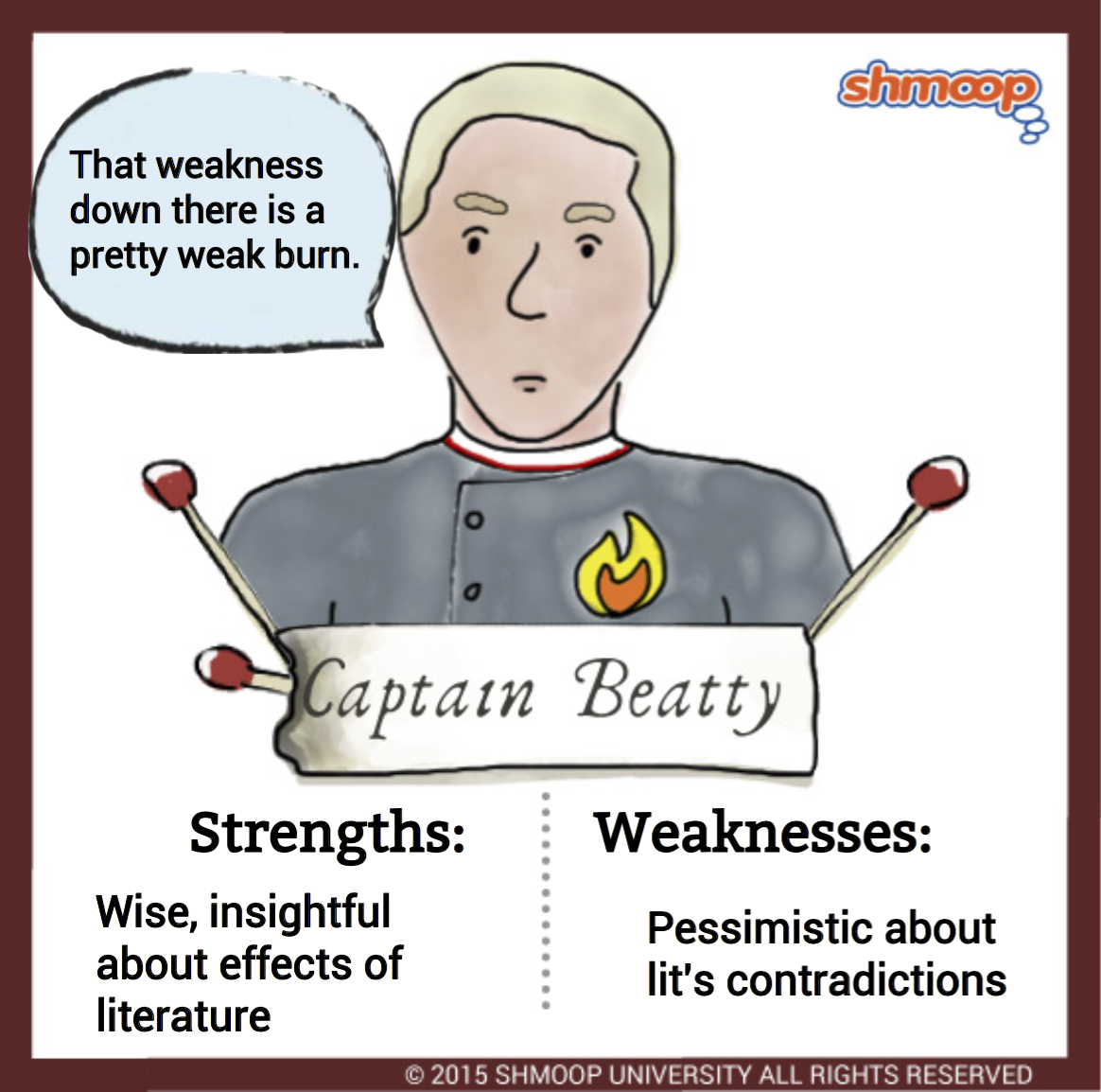Character Analysis

(Click the character infographic to download.)
Captain Beatty is a bit of paradox. He’s the head honcho fireman, but he knows more about books than anyone else. He burns these texts with a fiery vengeance (wink wink), but he spends half his time quoting from them. Did you notice how his speech is full of Biblical references? “You’ve been locked up here for years with a regular damned Tower of Babel,” he tells the old woman. “You think you can walk on water with your books,” he says to Montag. He even mentions the Greek myth of Icarus. He’s the most well-read book-burner we’ve ever encountered.
It’s not until Beatty gives Montag that big speech in Part One that we understand what’s going on in this guy's head. He used to be curious about books, just like Montag is. He used to question the system, just like Montag. And just like Montag, he took action – he read, rules be damned. So what in the world makes him different from Montag?
Hold that thought for a paragraph or so. What makes Beatty such a powerful force in this novel is that, actually, he makes a decent point in his anti-book ravings. Literature is contradictory. It is confusing. It is treacherous, it will mix you up, it will force you to answer questions you never wanted to ask, and it will quite often pull the rug out from under your feet.
But that’s one of the lessons of Fahrenheit 451. It’s not about what books say, it’s about the process of reading them and thinking for yourself. It’s about questioning. This, of course, is the reason books were abolished in the first place – not for the information they held, but for the dissent they caused amongst their readers. So Beatty is right to argue that books are contradictory. But he misses the point. Contradictions are the whole idea behind literature.
That is what makes Beatty different from Montag. He’s not willing to do the thinking. He doesn’t want to question and think. He turned books down because they don’t hand him The Secret of the Universe all tied up with a bow. Montag, on the other hand, wants to work for his knowledge. He wants to understand what he reads, as he tells Faber, and then think for himself to decide in what he believes. That’s why he’s the hero, and Beatty is the villain.
Captain Beatty's Timeline